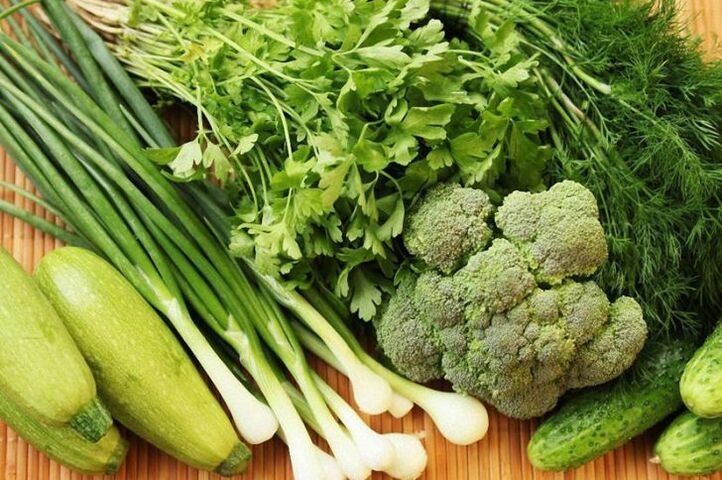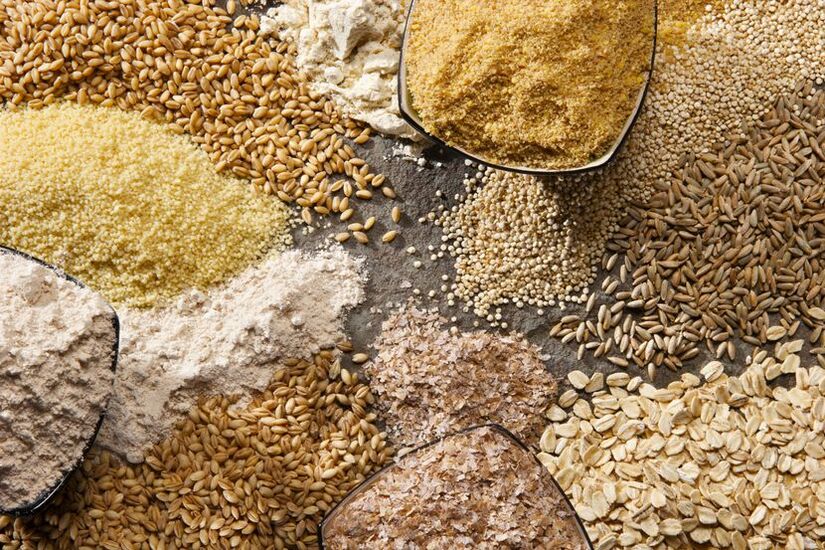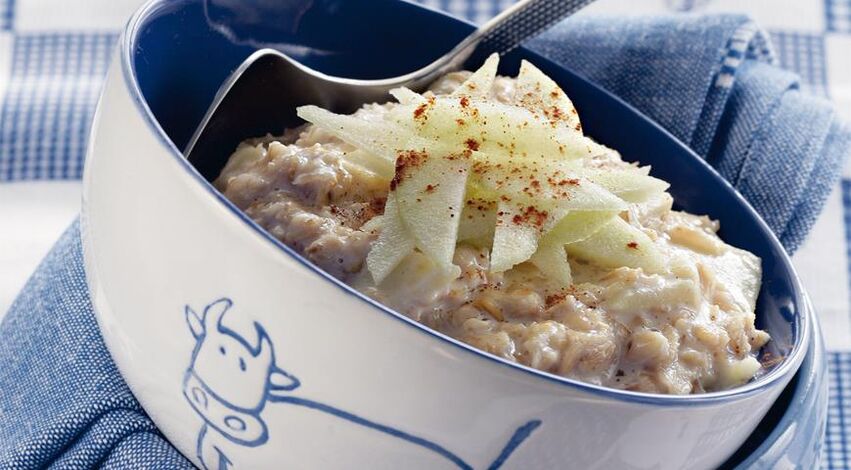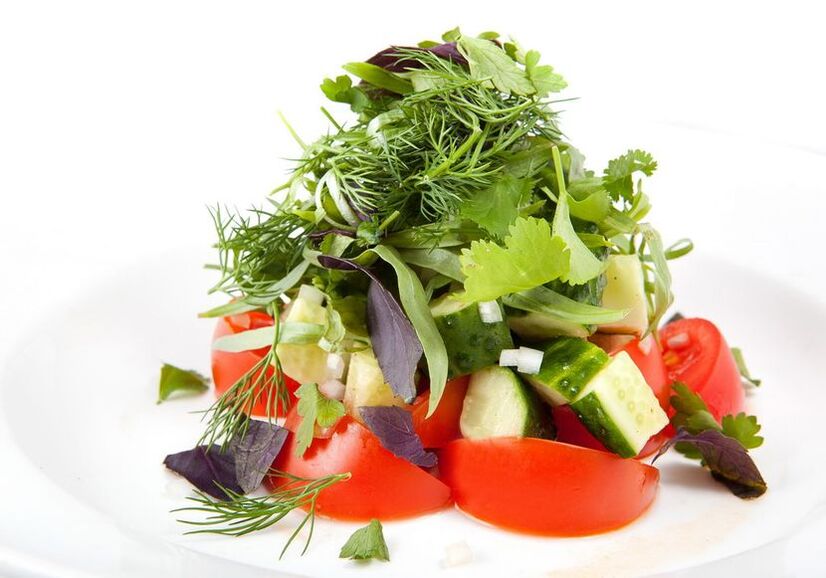
Allergy is considered to be a disease of our time, which is expressed in hypersensitivity to certain substances, products and substances. The most common types of allergies are: pollen, dust, food, medicine, animal hair, insect bites.
There are two ways to relieve the condition with an exacerbation of an allergy: medication or a hypoallergenic diet. The diet will be equally effective regardless of the type and severity of the allergy, whether in the form of sudden or chronic atopic dermatitis. Allergies are a serious disorder in the body, so you should see a doctor.
Recommendations for a hypoallergenic diet are just a small part of what you can do alone.
Hypoallergenic diet menu
A person following such a diet can remove food that triggers allergic reactions.
According to research by nutrition experts, each product was divided into three groups: low allergen, moderately allergenic and high allergenic.
Approved and healthy foods for allergies:
- cereals of all kinds, except maize,
- biscuit,
- all types of dried fruit,
- unleavened pasta,
- green or yellow vegetables and fruits. These are asparagus, cucumbers, apples, cabbage, greens, yellow cherries, gooseberries, pears,
- compotes, jellies and green fruit jellies,
- Red meat,
- dairy products,
- butter.

Foods to eat carefully:
- orange or red fruits and vegetables, as well as jellies, juices and compotes,
- grenades,
- chicken and eggs,
- strawberry raspberry strawberry
- fish and caviar,
- nuts
- Horse meat,
- melon,
- black and red currants.
Foods strictly prohibited for all types of allergies:
- all citrus fruits except lemons,
- mushroom,
- milk,
- Honey,
- shop confectionery,
- chocolate, coffee, cocoa,
- lamb, veal, turkey and rabbit meat,
- olive oil,
- any smoked meat,
- celery sorrel,
- smoked, canned, salted, pickled and spicy foods,
- alcohol.
Of course, it is not possible to eat one kilogram of cucumbers or apples at a time, which is allowed in the diet. Even a completely healthy body can react completely unexpectedly to such a load and manifest itself in the form of allergies. Moderation should be reflected in everything. And the best solution would be a fragmented meal so we can track the occurrence of any allergies.

7-day hypoallergenic diet sample menu
First day
- Breakfast: cottage cheese with sour cream and added sugar, tea.
- Dinner: vegetable soup, a slice of boiled beef, green apples, kefir.
- Dinner: buckwheat porridge, steamed vegetables, jelly.
The second day
- Breakfast: oatmeal with added butter and dried fruits, green or black tea, optional.
- Dinner: vegetable soup, boiled pork, compote.
- Dinner: rice porridge, steams, yellow apples, kefir.
Third day
- Breakfast: sandwich with cheese and butter, tea, yoghurt.
- Dinner: vegetable soup, a slice of beef, compote.
- Dinner: mashed potatoes, stewed pork, banana.
Fourth day
- Breakfast: cooked pasta with added butter, tea, pears.
- Dinner: vegetable soup with meat, dried fruit compote.
- Dinner: stewed vegetables, apples, tea.
The fifth day
- Breakfast: dry biscuits with butter, tea, banana and pear salad with yoghurt.
- Dinner: vegetable soup, stewed beef steak, banana, compote.
- Dinner: wheat porridge with steamed vegetables, tea.
Sixth day
- Breakfast: curd curd, tea.
- Dinner: vegetable soup, a slice of boiled beef, compote.
- Dinner: buckwheat porridge, yogurt, banana.
Seventh day
- Breakfast: buttered bread and cooked meat, pears, tea.
- Dinner: vegetable soup, steam, banana, compote.
- Dinner: oatmeal, fresh vegetable salad with herbs, kefir.

Advice from professional nutrition experts
Make sure you eat soup every day at lunchtime for housing and utilities to work properly. The base should always be just vegetable soup, as broth can cause allergic reactions.
As a snack you can drink cottage cheese, yoghurts, fruits, vegetables, tea with the addition of lemon.
If you stick to this type of food for at least a week, you will immediately feel extra strength. First, thanks to a healthy and balanced diet, the body will be able to cleanse itself of toxins. Second, by removing potential allergens from your diet, it will be easier to monitor the dynamics of allergies and draw conclusions.
Adults can follow this diet for up to three weeks and children for up to 9 days. If it becomes noticeable at the end of your diet that your health has improved, you should gradually add previously banned foods. This should be done at three-day intervals for all new products, as the allergic reaction may not occur immediately. This diet is also called non-specific.
In case there is no improvement, moderately allergenic and then low allergenic foods should be gradually excluded. You should only restrict your diet under the supervision of a professional. To more accurately identify allergies, doctors are advised to keep a diary of how the body responds to each product.
All your body's needs for vitamins and minerals should be taken into account when eating. You can’t eat too much because the excess food particles aren’t digested but just poison the body.
Protein-rich foods should be combined with vegetables, in which case the fibers in them prevent allergens from entering the bloodstream.
This type of diet food is suitable for absolutely all adults, children and even nursing mothers.















































































